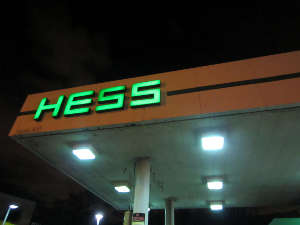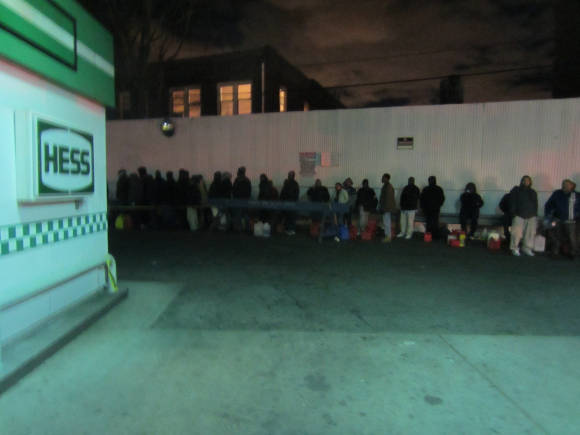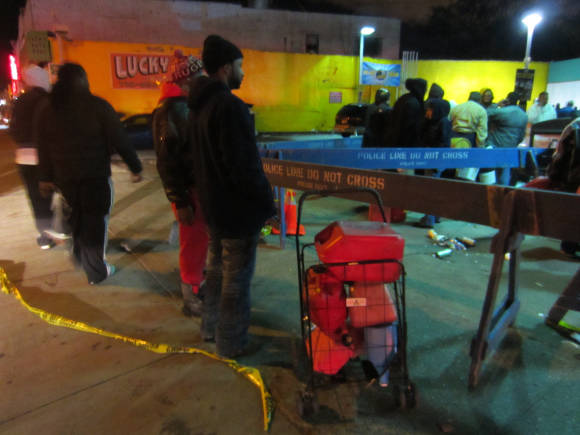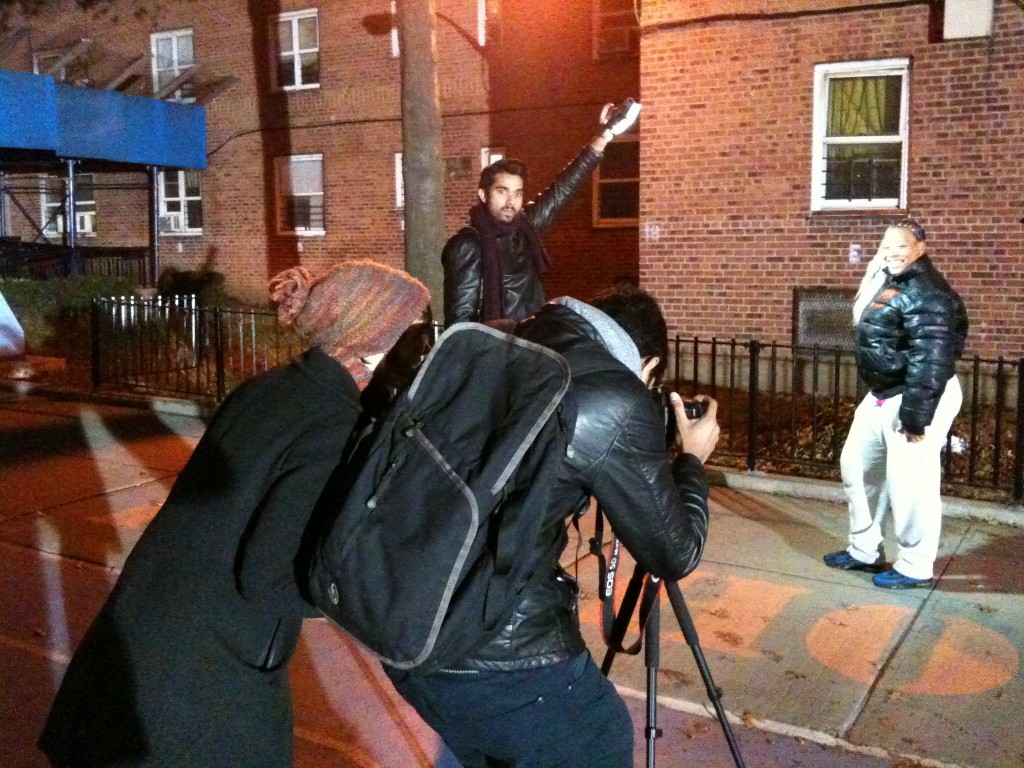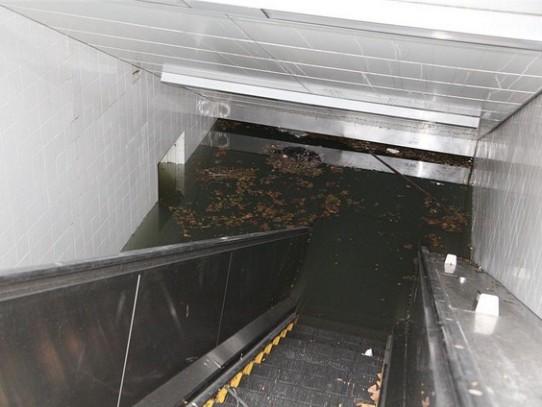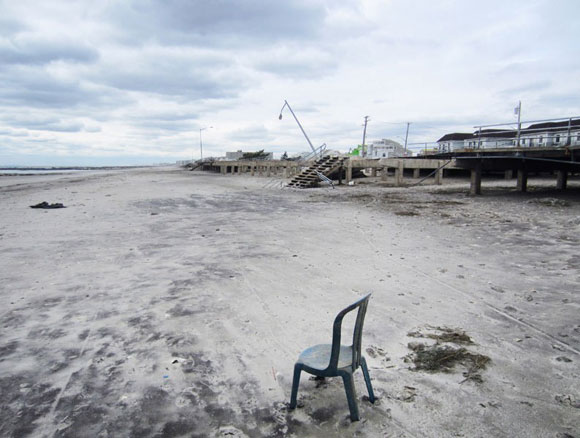From Libya to Liberty Avenue, Hess was making a killing.
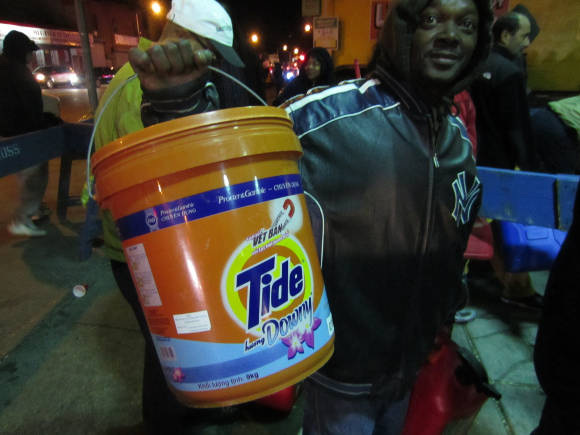
November 19, 2012
During the week of Hurricane Sandy, I reported on a Hess station on Liberty Avenue in Queens, one of the few in Greater Jamaica that had gas immediately after the surge. I returned a few days later—after Governor Cuomo ordered the release of millions of gallons of free gasoline—and found the station still clogged.
For ten blocks, the parking lane, usually empty on Sunday night, was filled with waiting cars. Many were parked; some were empty. I asked some folks leaning on a truck about the free gas at the nearby National Armory. “No, no,” an older man said to me. “There is a five-gallon limit and it is only for first-responders. We’d rather take our chances here.”
I hadn’t heard that information, but was not surprised at the conflation of rumor and fact.
The station itself looked like an accident site. Orange cones dotted the roads, while a police truck silently flashed its lights at the entrance. Police officers monitored cars coming in and patrolled the pumps. The lines of vehicles and people brought an unusual level of life to the streets. The nearby liquor store was empty.
Auxiliary police officers, all volunteers, directed street traffic, occasionally pacifying tired gas-seekers. A gangly young officer in an ill-fitting uniform was cornered. “I’ve waited here in my car 36 hours,” an Indian man in a hooded sweatshirt howled at him, while others looked on, wearily.
A day later I receive an unsolicited email from a colleague, suggesting I look at the Hess website. Hess was announcing the gas levels at all of their stations, an unprecedented step. How, I wondered, is a small chain—barely noticeable before the storm—so well-positioned in a gas shortage?
I found details of Hess’ operations in Business Week. One week after Hurricane Sandy, fifty-three percent of Hess’ almost 200 nearby stations are open, compared to 25 percent of all other gas stations. “Of all the walking wounded, Hess has fared by far the best,” said Fadel Gheit, an oil and gas analyst.
According to the article, Hess’ familiarity with the region was a huge asset. They have several plants in New Jersey and their corporate headquarters are in New York, at 1185 Avenue of the Americas. They bought 85 generators in advance of the storm to keep darkened stations open, and their distribution network from New Jersey was largely uninterrupted.
I called Vincent Merry, lawyer for a firm on Wall Street, to find out if Hess’ stock price had changed recently. He looked it up. “Not much movement,” he said. “They are actually off of their projected price for this point in the year.” But, he added, “in an industry like this, the real outcome is going to be when they do their quarterly earning call.” It is difficult to measure precisely how successful Hess has been in the past few weeks, but there are signs that they are making money; they recently donated $5 million to the relief efforts.
While searching Hess’ current successes, I stumbled upon some unrelated, but remarkable, information about their recent upsurge in profits.
“Days after Sandy barreled through the East Coast and left millions without power, Hess reported that earnings doubled in the third quarter. The gains were led by a ramp up in oil exploration and production in Libya and the Bakken shale as well as stronger oil and gas prices. The New York-based gas station operator posted net income of $557 million, or $1.64 a share, compared with a year-earlier profit of $298 million, or 88 cents.”
In the past year, access to Libya’s oilfields has doubled Hess’ profits. It is a $300 million by-product of a conflict that the government of Libya estimates killed between 25,000 and 50,000 people.
It was a stunning piece of information. Yet, scouring the papers, I found no engagement of the ethical questions around this profiteering. Instead, there were numerous accounts of the small-time hustles of desperate citizens. Stories about transporting gas across state-lines, hoarding gas for friends, angry customers at stations, and looters dominated.
I watched as people carried industrial-sized Tide buckets and transparent water cooler containers to their cars, and improvised ways to load their tanks. I was worried the petroleum might melt the untreated plastics. More than once, someone would shout: “Don’t spill the gas!” The sharp, intoxicating smell of gasoline was everywhere.
I had seen and heard people negotiating gasoline at the Hess station in Queens. Some paid others to stand in line for them. Others pulled favors with the police or the owners. A van circled the station, reselling gallons at huge markups. “Yeah, man, a guy pulled up a little while ago. Fresh from an out-of-state run, he offered me five gallons for $150. I don’t got that,” said a driver, who added that he didn’t even have enough gas to get home.
I asked a talkative policeman about the people that were making huge profits by reselling gas. His answer was simple: “I would.” In desperate times, people were willing to compromise their own safety for a few dollars. Away from the station, I spoke to a man with hundreds of gallons to resell.
How do you take the sickening odor?
“I threw up twice yesterday,” he told me. “My hands burn.”
—
Les Paultre, a community activist and Far Rockaway resident, has been helping people in his community find food, water, and services. Many are in their third week without power. I asked him if the underground economy should be the focus of so much attention.
“Remember, we were facing unemployment issues without the gas crisis,” he told me. “Now the stores are closed, and buses and trains aren’t running. Everything is upside down. I can’t blame somebody who wants to find a way to feed their family.”
The big companies like Hess, he said, need to answer questions.
“People are without power, temperatures are dropping, and they are using their stoves to heat themselves. Will people receive a gas credit, or are gas companies going to profit from this?”
In Libya, the U.S. military warplanes and CIA-backed rebels had opened up oilfields from which Hess obtained gas. Here, during a crisis in Queens, Hess’ gas distribution business was being assisted by the New York City Police Department, at no cost to Hess.
From Libya to Liberty Avenue, Hess was making a killing. This was pure profit, subsidized by the public—through armed forces, police, and military—and then sold back to the public, under situations of duress, whether war or natural disaster.
The people themselves suffered in the cold and darkness, went without sleep, and poisoned themselves with gasoline. The Libyans had suffered worse.
A crisis for some was an opportunity for others. And for those who profit, the more crises, the better.

